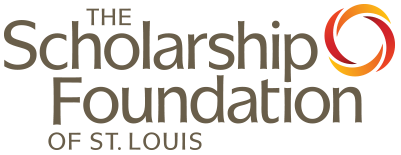
I’m out to prove to you in this blogpost what you already know. There are some who are quite motivated to “do well” (and among them there are those who share their wealth with those less fortunate). There are others motivated to do good, putting self-interest a distant second. A healthy community needs a mixture of doing well and doing good among its members.
For the last several decades, the process of equipping our communities with do-gooders has been endangered by crushing levels of student loan debt. The Public Service Loan Forgiveness Program (PSLF) was put in place by the United States Department of Education in 2007, to “provide indebted professionals a way out of their federal student loan debt burden by working full-time in public service.” Through application and a federal certification process, individuals with federal loans may qualify for student loan forgiveness if they are working for public or nonprofit entities.
Public Service Loan Forgiveness is one of the many student assistance programs on the chopping block in Washington. Without this program, graduates may not have the opportunity to do good when their debt from earning a degree requires them to do well, quickly. Such a policy change will harm nonprofit organizations and assure a scarcity of individuals who have experienced economic hardship available to work with those who are financially stressed.
To prove the value of the program to you in real terms, please meet three of my colleagues who do good every day:
Karissa Anderson has served two years as Manager of Advocacy and Policy Research for The Scholarship Foundation and St. Louis Graduates. Earning her BA from Southeast Missouri State in 2012 and her MSW from Saint Louis University in 2015, Karissa borrowed federal and Scholarship Foundation loans to finance her education. She is the first in her family to complete a degree. Karissa works with dozens of young leaders each year to engage them in researching policy issues and representing students with financial need at the institutional, state, and federal levels. She is one of my life heroes, providing not just for herself but for three younger siblings as well.
Robert Elam says that “dedicated public servants and the broader community gain tremendously from PSLF!”. Robert earned his MSW at University of Missouri-St. Louis in 2016, after completing his undergraduate degree at St. Louis Community College and University of Missouri-St. Louis. A Student Advisor with The Scholarship Foundation of St. Louis, Robert works with hundreds of high school and college students (and their families) annually. His work is especially concentrated at North Tech High School, Granite City High School, and with students from Big Brothers Big Sisters of Eastern Missouri. Intelligence, diligence, the chance to pay down his student debt through PSLF, and an advanced degree have put Robert in a strong position. He is: doing work that he loves, became a first-time home owner, and puts highest priority on time with his 9-year-old daughter, Morgen.
Tyronica Dowdy completed her bachelor’s in dietetics at Fontbonne University in 2013. Ty went on to work as a legal assistant in a private law firm specializing in immigration before she joined The Scholarship Foundation of St. Louis in 2015. She is responsible for board communications, supports resource development, and manages the Foundation’s offices. Ty is a constantly calming presence and a fabulous writer. I have not seen her be anything but kind, no matter who is across the desk or on the telephone. Ty’s comment on PSLF is the perfect close for this post: “Those who are drawn to public service often have dealt with challenging life circumstances and want to use their experience and education to help others improve their lives. The people who seek to eliminate PSLF see it as a ‘handout’ rather that what it really is – an investment in humanity.”
– Faith Sandler

